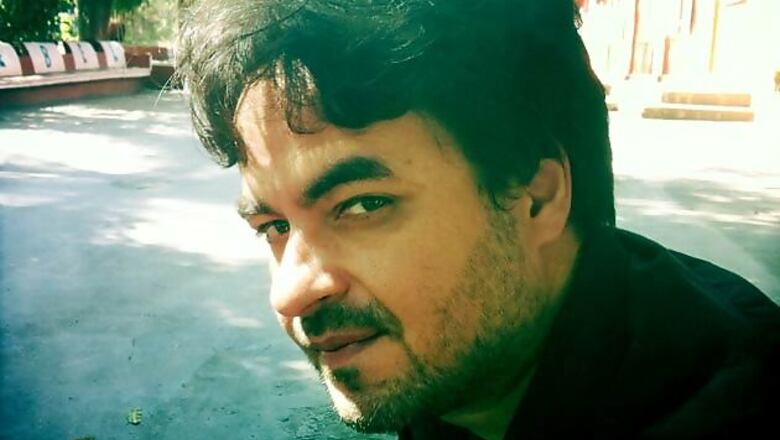
views
New Delhi: Gurvinder Singh received the National Award for the Best Director for his film 'Anhey Ghore Da Daan' (Alms for the Blind Horse) at the 59th National Awards. The film went on to win the awards for Best Cinematography and Best Feature Film in Punjabi as well. It was also adjudged suitable for 'Golden Peacock' award at the International Film Festival of India. A FTII graduate, Gurvinder Singh opens up about his life and journey so far.
Q: Not many filmmakers opt for a parallel road.
A: I wanted to be a writer first but when I came to FTII then I got the chance to see the works of great filmmakers like Tarkovsky, Godard, Truffaut and Bunuel and realised the importance of their films. This was 1997-98, till then the art cinema meant the Indian art cinema for me, which were made by Shyam Benagal and Ketan Mehta. These were the films that I had seen on TV. So, the works by international masters opened a new world for me.
Q: That means you see cinema as a medium to propagate new theories.
A: See, cinema is a philosophical medium. It can provide everything from entertainment to selling things to philosophy, at the same time it can find out the deeper meanings of human behaviour. It can probe about the relationship between the man and the nature. I see it as a reflective medium which can carry a thought process forward. I am just trying to find some new meanings of the visual medium.
Q: But, film schools are too theory oriented. Wouldn't that hinder the development of a filmmaker?
A: It's a medium that requires a lot of patience. Learning at a film school is not enough, you need to unlearn things and then to learn something new. When I graduated, the digital was just opening up. A lot of people were buying their own equipments and were making their own films. I travelled in Punjab for 4-5 years documenting the folk ballads, the emergence of the digital medium allowed me to do so.
Q: That would bring the budget down as well.
A: 'Anhey Ghore Da Daan' was made at a budget of Rs 2 crore, completely financed by NFDC.
Q: Are you satisfied with the condition of independent filmmaking in India because in my opinion indie cinema needs a lot of strengthening?
A: I think the future is bright. In 70s the independent cinema was mostly backed by the state. It is still there but the number of people who want to make films has increased. Filmmakers are getting funded from outside India as well. It has become a global phenomenon and Indians are making their mark internationally too.
Q: Will the scenario change if mainstream actors take interest in indies?
A: I have also not used any stars or telling any mainstream story. Even if my first film has got recognition and awards I am not finding it easy to get funding for my second film.
There is an audience for such films but the filmmakers are not able to reach them as there is no distribution channel for it. In Europe and America, there are theatres dedicated to independent cinema only. Such things help the indie films in flourishing.
Q: It might have become easier for you after the National Award.
A: I am trying to put things together for my second film but finding it difficult to arrange funds for it, so things have not changed much. It has become easier to approach somebody but then the producer will always ask how the film is going to recover its money, so then it is back to square. So, one needs to look at grants, other sources of funding as well. Conventional Mumbai producers would still not interested in my kind of films.
I am not consciously trying to make an image, I just want to make films the way I want. There is no strategy behind where I want to position myself.
Q: How did Gurdial Singh's story fit into your criteria?
A: The story talks about the anxiety of the dalit class, of the landless labourers of Punjab. It also tries to bring out the pain of migration. I interacted with a lot of people and found out that it's the ground reality. Though the novel was written in 70s but not much was changed. The novel gave the cinematic possibilities as well. The story structure was not enveloped in the typical cause-effect style.
Q: Are you going to carry forward your thought process in your next as well?
A: My next film is also in Punjabi. In the mid 80s, during the phase of militancy, this film is set in the post Operation Blue Star period. This doesn't implicate anybody or the state for what happened. It's about the plight of the common man who was caught amidst the chaos.####




















Comments
0 comment